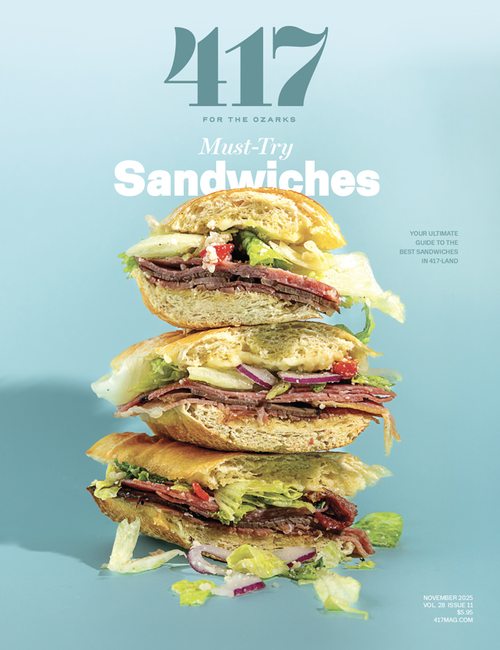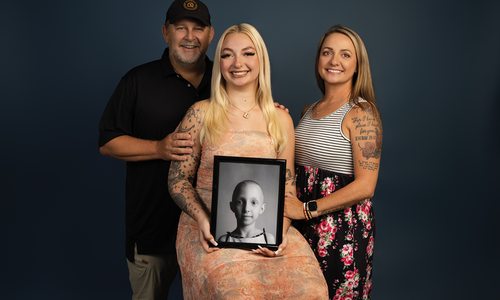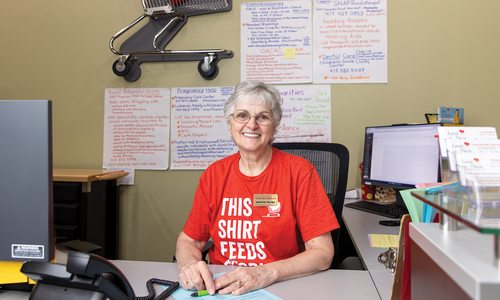Lifestyle
One Veteran’s Personal Journey From War to Reconciliation
This Veteran’s Day, wounded-in-action veteran Larry Rottmann shares his life and creative talents through firsthand accounts of the Vietnam War and post-war experiences.
By Tessa Cooper
Nov 2025
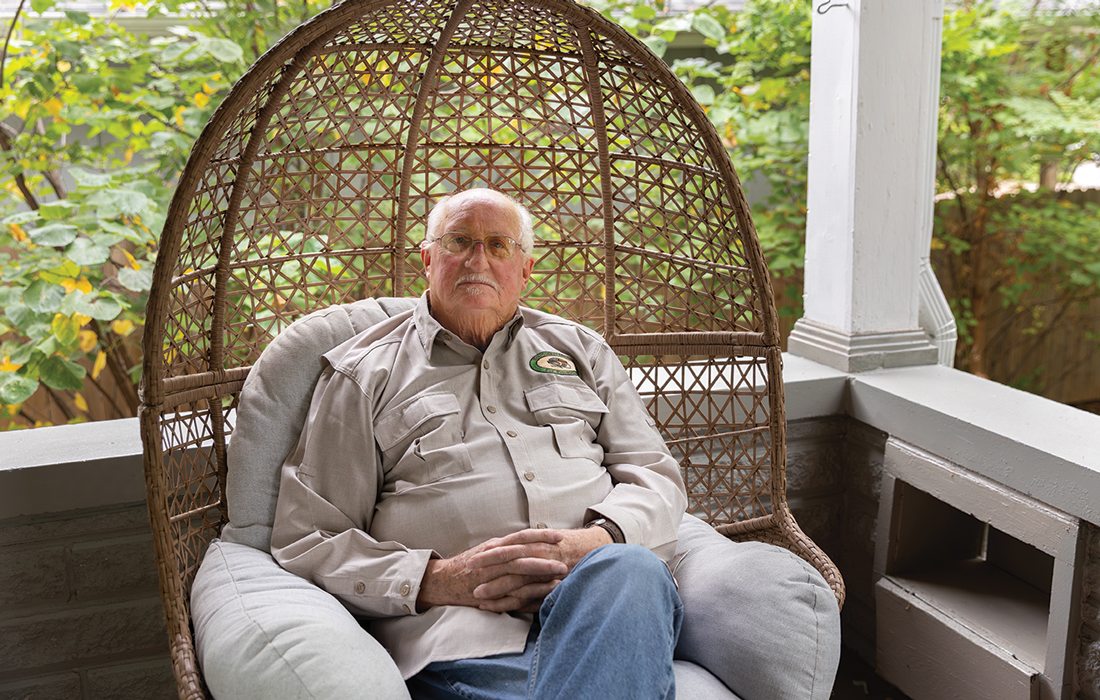
April 30, 2025, marked the 50th anniversary of the end of the Vietnam War. Over the past half-century, many soldiers who fought in this war have passed away, which is why Larry Rottmann, a Vietnam veteran himself, referred to the many observances of this date as a “national funeral for those brave former soldiers.”
As Vietnam veterans pass away, we lose important and undocumented firsthand accounts of the war forever. As a writer, photographer and documentary filmmaker, Rottmann has made it his life’s mission to remind our nation of the sacrifices of his fellow brothers and sisters in arms, both American and Vietnamese.
Rottmann and his grandfather, father and son all served in the U.S. armed forces. However, fighting in the Vietnam War wasn’t his choice—he was drafted.
“It’s important to understand that I was a citizen soldier, not a war lover,” Rottmann says. “I didn’t start the war. I didn’t volunteer for the war. I did as little harm as I could, but I do feel a profound sense of responsibility.”
As soon as he landed in Vietnam, he immediately experienced cognitive dissonance. What he had been told about Vietnam as a whole didn’t align with what he saw, and he immediately felt that what the United States was doing was wrong.
He truly admired the country and its culture. He didn’t mind the heat, he enjoyed the food and he loved the landscape full of sand beaches, mountains and rice paddies. But most of all, he couldn’t forget about the Vietnamese people he met.
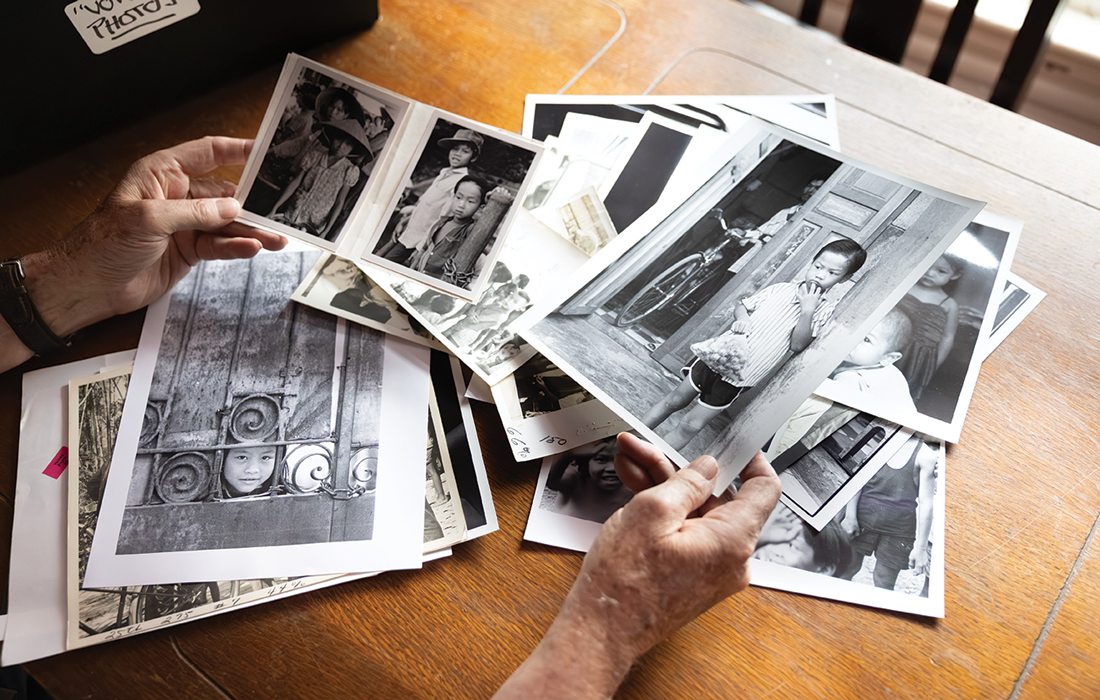
“Here I am in a camouflage uniform, 6 feet tall and carrying a rifle,” he says. “And yet, they were kind. During a war, you don’t have a chance to really get to know the people. It’s called fraternization, and it’s against army regulations. It’s okay to kill them, but it’s not okay to have a glass of rice wine with them. It’s okay to shoot them, but you can’t go fishing with them… I remember thinking if I lived through this, and I nearly didn’t, I’m coming back so I can go talk to these people.”
Rottmann went on to complete 23 extensive return visits to post-war Vietnam to document life in the country. He stayed in hostels, in guesthouses and with families, and he even taught in the local schools. He’d spend his first few days in the villages he was visiting, walking around and getting to know the people without a camera or a tape recorder. It was only after he established a rapport that he’d ask if he could take their picture and interview them.
One of his favorite ways to connect with the people of Vietnam was by bonding with them over fishing. “I kept a picture of me with a fish in my passport,” he recalls. “It made me lots and lots of friends. There are fishermen in nearly every country.”
When Vietnam veterans returned home one by one, Rottmann notes that they didn’t experience the same treatment as their fathers and grandfathers who fought in World War I and II. With all the misinformation spreading around, they weren’t praised as war heroes, but instead, often labeled as “baby killers” and sometimes publicly jeered at.
Rottmann has spent his life trying to correct the false and flawed accounts of the war. And at age 82, he’s continuing the work.
He’s shared his photos in exhibits, written and edited books, written two Hollywood film scripts and several stage plays, and produced three documentaries about the war. He was also the first Vietnam veteran to testify before the International War Crimes Tribunal and the U.S. Congress. According to Rottmann, it’s more important than ever to seek out reliable firsthand accounts to learn about the history of the Vietnam War.
“One of the things that’s happening in this day and age is the spread of misinformation, especially with social media and AI,” he says.
In 2021, Rottmann released a performance art film that he wrote, produced and narrated about his experience in the Vietnam War titled Voices From Vietnam: One Veteran’s Personal Journey From War to Reconciliation. Mark Biggs, former associate dean of the Missouri State University College of Arts and Letters, worked alongside him as the director.
Head to Arkansas to see a special screening of Voices From Vietnam at the Fayetteville Public Library on November 11 at 6 p.m., followed by a special presentation alongside two other military veterans on November 12 at 6 p.m. Rottmann’s collection of more than 100 post-war photographs will also be on display at the library from November 1–12.

